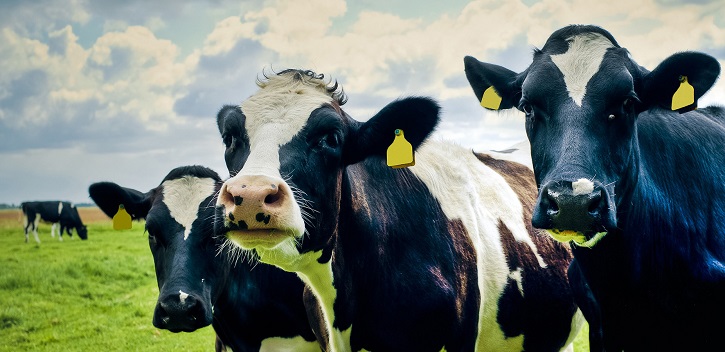Does kefir promote health?

Scientists at UCC’s APC Microbiome Institute have for the first time characterised kefir and gained new insights into some of its health promoting properties.
Kefir is a putatively health-promoting dairy beverage that is produced when a kefir grain, consisting of a consortium of microorganisms, is added to milk to initiate a natural fermentation. The grains ferment the milk, incorporating their friendly organisms to create the cultured product. The grains are then removed with a strainer before consumption of the kefir and added to a new batch of milk.
In the past, in order to get a better understanding of the identity of microorganisms of a product such as kefir, and their specific contributions to the flavour, texture and health-promoting properties, it was necessary to first grow (or ‘culture’) these microorganisms on agar plates, before then carrying out more detailed investigations.
Now, using cutting edge DNA sequencing technologies, the researchers have carried out the most in-depth characterisation of these populations to date. These technologies were used to analyse the entire microbial communities present in three different kefir grains from Ireland, France and the UK, including those which are not easily grown on agar.
“We were able to determine how specific microbial populations dominate during different stages of the fermentation process and how the flavour of the fermented milk, which can have vinegar-, buttery- or fruity-flavours, is dictated by the genes encoded with these dominant species," said lead-author Aaron Walsh, who is carrying out his PhD research in Teagasc food Research Centre. “Using this knowledge we were able to alter the flavour of the milk by changing the ratios of specific kefir microbes. DNA-based analysis of kefir milks also provided a vast amount of additional data relating to the microorganisms present, including interesting insights regarding the presence of genes considered important for probiotics and which may explain the long-held view that kefir has health-promoting properties.”
Dr Paul Cotter, leader of the research, a Principal Investigator at APC Microbiome Institute and Teagasc Food Research Centre, continued “many traditional fermented foods which have been reported to have health benefits are produced on a small-scale artisanal basis. Our results could be used to optimise the fermentation processes, flavours and health-related attributes of kefir and other fermented foods and bring them to a wider consumer audience.”
APC Microbiome Institute research focuses on the microbial community (the microbiome) that lives in symbiosis both in and on us. The microbiome is comprised of bacteria, yeasts, viruses and bacteriophage that live in harmony with their human and animal hosts, promoting health, and occasionally contributing towards disease. The microbiome provides not only a target for treatment and prevention of disease, it is also a repository for functional food ingredients, new drugs and biomarkers of disease. Since its foundation in 2003, as a partnership between UCC, Teagasc, CIT and industry partners, APC scientists have made several seminal contributions to research - they have related food and microbial diversity with health, have discovered new anti-microbials and anti-inflammatories, and developed templates for future foods.
The research, which was funded by Science Foundation Ireland under a Research Centre grant to the APC Microbiome Institute, has been published in the journal mSystems.
Full reference:
Microbial Succession and Flavor Production in the Fermented Dairy Beverage Kefir
Aaron M. Walsh, Fiona Crispie, Kieran Kilcawley, Orla O’Sullivan, Maurice G. O’Sullivan, Marcus J. Claesson and Paul D. Cotter mSystems (2016) DOI: 10.1128/mSystems.00052-16
http://msystems.asm.org/content/1/5/e00052-16
ENDS
For further information contact Dr Catherine Buckley, Communications & Outreach Manager, APC Microbiome Institute, University College Cork. Tel +353 (021) 4903362; mobile +353 (0)86 8554744; c.buckley@ucc.ie
